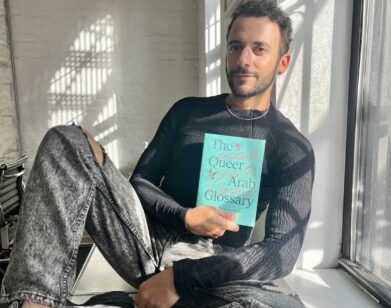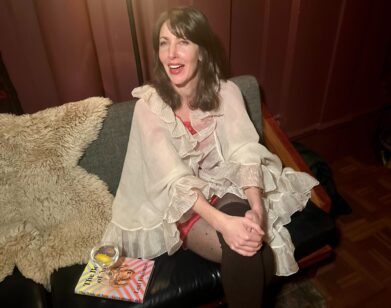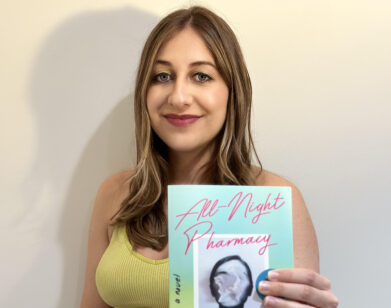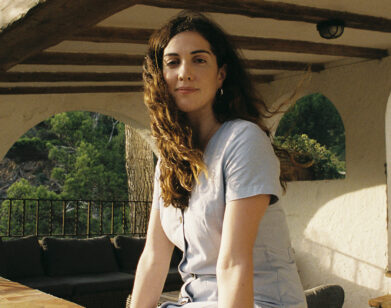The 10 best books of 2017

10. How To Murder Your Life, Cat Marnell
Cat Marnell’s long awaited autobiography is many things—a dark addiction memoir (rats! roaches! rehab!), a frothy eulogy for a bygone era of NYC’s social scene with wild celebrity cameos (Nev Schulman! Anna Wintour! The Fat Jew..?!), and a messy family drama. But perhaps the most interesting facet is the media insider perspective Marnell gives on the tectonic shift from print to digital. She traces her bumpy road from tony Conde Nast to upstart new media publications like xoJane and VICE, rendering legendary editors like Jane Pratt and Jean Godfrey-June in all their glory. Never before (and probably never again) has the story of old media’s economic and cultural upheaval by the internet been told in such juicy detail. —Ezra Marcus
9. Nature Poem, Tommy Pico
In the author’s second poetry book, the reader follows Tommy Pico’s spunky and observant protagonist, Teebs, as he navigates his relationships in New York City. Through thoughtful prose that incorporates elements of modern day messaging apps, Teebs comes to terms with his own American Indian (or NDN, as he writes) heritage, while Pico considers the implications of writing a modern day nature poem. —Austen Tosone
8. Somebody with a Little Hammer, Mary Gaitskill
Mary Gaitskill is primarily known for her fiction, which launched her to literary fame in the ’80s. But since then, and no less forcefully, she has been writing essays on music, books, art, politics, sex, and power with the same unflinching gaze she trains on her imagined worlds. Her nonfiction works have been gathered for the first time in this revelatory collection, which touches on everything from the music of Björk to sexual assault. —Matt Mullen
7. Ill Will, Dan Chaon
Young white men are hardly the expected victims of a contemporary serial-killer mystery, but nothing about Dan Chaon’s latest novel, this year’s brilliant Ill Will, corresponds to expectations. Chaon rips up the formula of the horror thriller and instead delivers a dark, experimental odyssey of dying sons and flailing fathers right in the American heartland. It’s a superb, extremely twisted read. —Christopher Bollen
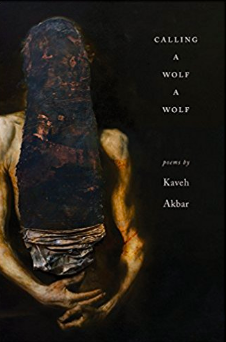
6. Calling a Wolf a Wolf, Kaveh Akbar
“I think there is a way in which you write the book you need to read,” Kaveh Akbar, the author of Calling a Wolf a Wolf, has said. “And this is the book I needed to read.” Akbar’s incredible debut poetry collection deals with his experiences with alcoholism and recovery, but also faith, family, the body, language, and loss; all distilled into exquisitely felt poems that linger long after you turn the page. —Matt Mullen
5. Hunger, Roxane Gay
Through her life story, prolific essayist and best-selling fiction writer Roxane Gay explores the complexity of weight and how commercial media perpetuates a cycle of unending self-hatred for women. The beautifully written memoir chronicles not only the traumatic gang rape endured by Gay in her preteen years, but also the deeply personal way in which her body carried the subsequent pain. Known also for her outspoken online persona, Gay breaks from the mold of glamorized feminist autobiographies—and whether mainstream feminists want her voice or not, they sure as hell need it. —Jane Gayduk
4. The Future Is History: How Totalitarianism Reclaimed Russia, Masha Gessen
With the revelations about Russia’s meddling in our 2016 election, intent of destabilizing our democracy, journalist Masha Gessen has become an essential resource in helping us understand just what kind of threat we are dealing with. The winner of the 2017 National Book Award for nonfiction, Gessen’s fascinating tome helps to shed light on the forces that led to the rise of Vladimir Putin’s Russia through the lens of three citizens who came of age in the Soviet Union and four citizens who came of age under Putin. The picture that emerges is of life under a system that—while not Stalin’s totalitarianism of purges and gulags—is nonetheless crushing to its people and perhaps even more virulent. —Catherine Davis
3. The Refugees, Viet Thanh Nguyen
Sometimes it takes a work of fiction to make people truly understand real-life events. Pulitzer Prize winning author Viet Thanh Nguyen’s short story collection, The Refugees, does just that by diving into the human impacts of a refugee crisis. Each narrative follows primarily Vietnamese characters driven from their homeland at the end of the Vietnam War, with heartbreaking consequences. Written over a period of 20 years, Nguyen’s collection serves as a healthy reminder that the hardships of displaced people are, unfortunately, timeless. —Jane Gayduk
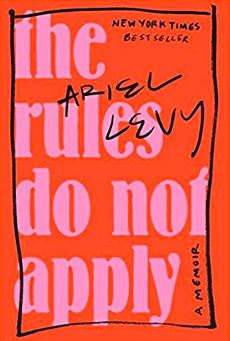
2. The Rules Do Not Apply, Ariel Levy
Although her book technically has 31 chapters, a reader can separate Ariel Levy’s memoir into two parts: before and after. The New Yorker writer lost her spouse, her baby, and her home, in one fell swoop and documents the somber story in her relatable, yet matter-of-fact voice. With striking detail, she paints a poignant picture of what she wanted, how she got it, how it slipped away, and how she began to rebuild. —Austen Tosone
1. Lincoln in the Bardo, George Saunders
The literary prowess of great American writer George Saunders is no secret, and his first-ever novel did not fall short of recognition this year, even winning the Man Booker Prize. Lincoln in the Bardo’s unique narrative structure, dialogues done through first-person monologues, broken up with not necessarily real historical accounts, fleshes out a story of the 16th U.S. president’s son’s untimely death. It’s a witty, multi-layered tale of the tragic ways in which humans cling to life, and of our difficulty, as a species, to come to terms with what comes after. —Jane Gayduk

